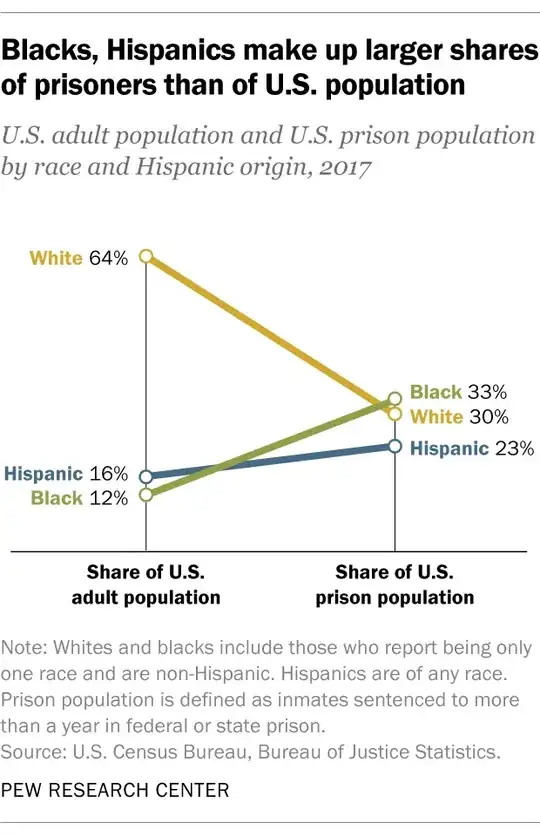This 2017 article from the journal of the US's National Institute of Justice states:
One statistic indicates that children of incarcerated parents are, on average, six times more likely to become incarcerated themselves.
It provides a citation to: Megan Cox, The Relationships Between Episodes of Parental Incarceration and Students' Psycho-Social and Educational Outcomes: An Analysis of Risk Factors (Philadelphia: Temple University, 2009).
The reasoning makes sense, but I was just wondering what statistics show this, especially in regards to kids in the same communities who grow up with an incarcerated parent or not. Thanks.
